
Most slackers play video games
all day and the closest they get to the girl of their dreams is that
poster of Laura Croft from “Tomb Raider” on the bedroom wall.
Not Scott Pilgrim. In SCOTT PILGRIM VS. THE WORLD, Scott, (Michael
Cera) who is in the mediocre band with the awesome name of “Sex Bob-Omb”
meet crazy-haired Ramona Flowers (Mary Elizabeth Winstead), while she
rollerblades through his dreams. But, in video game vixen form,
she has seven evil exes that Scott must battle before he can win her.
I got a chance to check out
the Toronto set mere hours after leaving San Diego Comic Con last summer.
Director Edgar Wright (who I tried very hard not to drool on…I am
a huge fan of SPACED) came over to chat with us,
and chat he did! Yeah, his answers may be long, but he gave us
some fantastic information about the film! About half way through,
stars Michael Cera and Jason Schwartzman, who plays ex Gideon Gordon
Graves popped in to hang for a bit. God, I can’t wait
for this film! And if you haven’t read the first five out of the
six comic books it’s based on, you are seriously missing out!
SCOTT PILGRIM VS. THE WORLD
opens August 13th, 2010.
Michael Cera, Edgar Wright and Jason Schwartzman
This is your first film not only your
biggest film, but it has a lot of action, but it’s your first adaptation,
so how has that been for you?
Wright: Well, it’s been great in a
lot of ways in terms of… the funniest thing that Brian has said
in a couple of interviews but the person who cares least about the changes
in stuff is Bryan Lee O’Malley. What’s been really great about him
is that no only has he been heavily involved right from the first draft
but what’s interesting is he really understands what an adaptation
means in terms of what we’re trying to do. We are putting all six
books into one film in a sense. It’s definitely in the spirit of the
books. Sometimes it’s completely verbatim and sometimes it’s just
the overall tone we’re trying to bring across and make it one whole
story.
What’s interesting in the way he writes
is that he changes his mind all the way through, so even our first draft
of the script which is the one that got leaked onto the internet, which
people said had loads of things that weren’t from the books, was all
stuff from the books that he later changed and so there are things in
the film that are truer to his original plotlines and then he ended
up changing his mind and there’s even little bits of dialogue that
were in the books and then we kept them in the script than he cut them
out. The way that he writes, he tends to have a… well, weirdly, we
wrote the first draft after he wrote the first two books and then we
kind of picked his brain… me and Michael Bacall came to Toronto and
we sat down and he had like biogs for the other exes and some ideas,
and we basically picked his brains and he went up and thought about
it and wrote out the plotlines for the other four books, so then we
had that to work off of.
Some of our script takes stuff from that
which has since changed a little bit. So all of us have felt quite comfortable
about the idea that people will get their value for money next year
in terms of the books will have one ending and the film will have another
ending, so it’s just a Bizarro… there’s a point in the film where
the two things split, but none of them are necessarily wrong or right
because all of the sort of things that people will think are more controversial
changes—even things like just the genesis of some characters—like
you’ll see the set for the Katayinagi (sp?) Twins who were originally
called the Katamari Twins, but what we’re doing in the film is what
he was originally going to do before he changed his mind. Also, Brian
as well, you can tell with some of the books that he gets to a point
in the book where he can’t be bothered to actually draw the fights
(laughter).
Particularly in Book 2, you can tell
that he kind of tosses away some of the fights ‘cause he’s…
so I think it’s really fun in a way in terms of that we’ve been
able to pick his brains, so there are things in the film that are from
an alternate Scott Pilgrim which is no different from his original sketches,
and there are things like… even like crazy things that came from the
first villain biogs that we went down a path at one point in terms of…
I don’t know.. at one point, Gideon was going to turn into a massive
robot at the end. So he just designed it all and just thought.. we just
came it to the end of thinking by the time this comes out, it will seem
like we’re making a Transformers joke so we kind of scrapped it all.
But he’s not even doing that anymore anyways, so it’s been a lot
of kind of this big pool of ideas, both that are in the books and ones
that didn’t make the grade, or just sketches of other things that
we’ve managed to take things from, so that’s been really good. And
he’s been involved in the process a lot, down to even designing…
you know the things where we painstakingly went through and all the
T-shirts he drew in the comics, we made them, and we got him to do ones
or say when Todd Ingram is wearing a Punisher T-Shirt, we got Brian
Lee O’Malley with Marvel’s permission to do the Punisher designer,
so it’s the Punisher shirt but it’s Brian Lee O’Malley’s version
of that skull, so it should be a really good collector’s item. Which
most of the collector’s items in this film are licensed to other people.
(laughter)
I understand that it’s sort of a
two-way street because Brian has stole some ideas from you guys.
Wright: There’s a couple ideas in Book
4 and 5 that are from our script, only two lines but they’re ones
that we’d written and then he said, “Oh, can I have that?” In
that respect, he’s been a great collaborator, and I’m sure we’ve
abused him in some ways when there’s a copy of “Now Magazine”…
it’s like “Hey, you can think up some funny subheadings… hey,
Bryan! Write some subheadings for this magazine.” Tiny, small print
things… and he and Michael Bacall get on great so whenever there’s
been those little details and stuff in terms of fake band names and
the stuff you basically will only see on freezeframe on Blu-ray, have
kind of Bryan’s fingerprints all over them.
Will there be some sort of comic book
movie adaptation by some other artist?
Wright: I don’t think so. I wouldn’t
have thought so. I just think it’s a nice thing in terms of they go
off in different paths. I think up until very recently, Bryan had three
different endings for the book. He was literally sort of.. and also,
he kind of changes his stories.. with anything—I think we even had
a similar thing on SPACED—sometimes it’s a bad thing…. I remember
when we were doing SPACED, the first series, the websites started writing
plotlines at what they’d like to see in the future and we had to ask
them to stop because if we had read any of them, 90% of them would be
terrible and there’d be one that would be good and then you can’t
use it because if someone came up with something that was quite good,
we actually said, “Don’t write any plotlines, please.” I think
in a way, especially with the books, everybody has their little polls
who they want Scott to end up with and I think Bryan wants to keep his
cards close to his chest. I think he even liked the fact that our film
has a slightly different ending because it means he can have his ending,
and it’s like they’re two different things.

Did you have any disagreements on
the way through?
Wright: No, he’s been like the….
You know… we basically just run everything past him, so he’s
read every draft of the script and he looks at the costumes and stuff…
not really. There’s even one thing. What’s nice in terms of there
are a couple lines we wrote that are in the book, and I say a couple.
There is literally like two lines that are in the books that me and
Michael Bacall came up with but on the flipside, there’s one scene
in this film that as we were doing the final draft that Bryan was reading
it and we had come to sort of an impasse on one particular scene and
he did a little polish on it, so he just rewrote one scene and that
seemed like the perfect way to wrap it up, is that the final thing we
had done on the script was that Bryan rewrote one of the scenes and
came up with a couple of lines. So it’s a pretty nice back and forth.
Because you’re so meticulous with
what you want, and because you’re so meticulous with each of your
shots – and you kind of edit the film to some extent
in your head already – how are you pacing yourself? How are you staying
focused throughout this whole four, five month process?
Wright: A lot of espresso, basically.
I think I reached me espresso limit. I don’t know; just a lot of coffee
and not a lot of sleep. I think on both SHAUN OF THE DEAD and HOT FUZZ,
I hit the wall at both points in the production where you work so hard,
and you just can’t function anymore, and you have a sort of mini meltdown.
On this one, it’s happened, like, twice already. That’s how I take
a yardstick of how long the shoot is and how hard I’m working, since
I’ve had two separate espresso-based meltdowns. It’s funny, too,
because working with Bill – I think in the first week of shooting
– we did 200 slates … um, in six days. And everyone was commenting
on how much it was and how fast it was, and I said to Bill – I said,
‘at the moment, I get to go back and make a film every 3 years, so
I’ve been waiting 3 years to get back on set.’ So when I start going,
I get out of the gate with a kind of fury and stuff because I’ve been
thinking about it for a long time… But you have to have the patience
for this sort of stuff, because we’ve been doing the second unit as
well, which I’m usually there for – a six-day week sometimes –
and you can’t get through 17 weeks of six-day weeks. It’s tough.
The thing about this film is that I made it extra difficult for myself
in terms of it being not just comedy, and not just visuals, but there’s
action and music as well. All those four separate things require so
much care and TLC, and any one of those things would be complicating
in a different film, and this one has all of it. And I think because
of the source material and the actors, and some of the collaborators
that we’ve got involved, and the fans as well, it’s just this huge
responsibility in every department and every compartment of it to make
it as good as it can be.
Normally on a set visit we’d ask
about the scene you’re shooting today, and I know it’s the end of
the film so you can’t really tell
us much … but what can you tell us?
Wright: Well I feel so bad about this
because the timing of it … literally, it’d be like showing up on
the set of EMPIRE STRIKES BACK for the “Luke, I am your father”
scene. It’s the worst timing. I wouldn’t even minded if you’d
been here yesterday when we were just fighting. Seeing Jason and Michael
fighting … I would’ve been happy; it’s a thrill to watch the two
of them duking it out.
You’ve been working so hard on this,
but everyone we’ve been talking to today has
been really up and going … so are they, like, on painkillers, or is
it just like the vibe of the set …
or, what keeps everyone going?
Wright: Well, firstly the cast are all
very young. They’ve got the energy of 20-year-olds. The cast has just
been amazing together, and I think it’s just a really good ensemble.
It feels really like having a cast full of ringers in terms of everybody
in every tiny part is really great. And so to have like big ensemble
scenes with ten of them in the same scene, or five of them in the same
scene, it’s just really good fun. Like with HOT FUZZ how we had great
people in every single tiny part, it’s the same with this. What’s
great with this is that there’s people you know, like with Michael
[Cera] and Jason [Schwartzman], and then we have people who are up and
coming, like Anna Kendrick, Aubrey Plaza and Brie Larson, and then there’s
complete unknowns as well – and so to have that mix of people is really
exciting.
We just talked to Alison and Johnny,
and they seem perfect for their roles, but was there any pressure to
get name actors? It seems like you got the right people for the right
parts, which is strange for an American movie in some ways; it’s not
like names or whatever …
Wright: Universal never really gave me
any problems about casting bigger people, because in a way Michael has
starred in two $100 million-plus movies, and also a lot of the other
people, though their not the biggest names, people certainly know who
they are. You know who Jason is, and who Chris is, and Mary has a sort
of rising profile. I think, then, when you have 20 of those people in
the same film, it’s really good. We have fantastic people in lots
of small parts, so I think it’s kind of a nice in a way – and the
thing I’m really pleased about with this film, as opposed to some
of the other comedies out there – and even stuff I’ve done before
– is that it has a lot of funny women in it. Really a large part of
the cast, and even the books are not just about his love life, but his
exes and family, and friends. There’s this one scene the other day
that I would describe as “the funny lady relay race,” because there’s
one scene which starts with Anna Kendrick, then switches to Aubrey Plaza,
then switches to Mary, then switches to Brie Larson, and it’s just
Michael being attacked from all sides from all the different women in
the film. In this case, not literally attacked …

One of the things I loved about the
comic book was the visual gags where people come on screen with title
cards and stuff. How did you incorporate that, or how are you planning
to incorporate that?
Wright: Well, I’m planning to be pretty
true to the books in that respect, because one of the things that intrigued
me about the books – or one of the things that got me interested
– was that I felt like there hadn’t been a comic book adaptation,
aside from maybe GHOST WORLD and AMERICAN SPLENDOR there hadn’t been
a bigger film that dealt in sort of like a comedy comic book film. There
are either ones going for the more fantastical and more gritty, or other
ones going for an entirely different universe, and what I liked about
this is that after I read the first book it reminded me of SPACED, in
terms of combining the mundane with the fantastical. And so I think
it came down to why not use those graphics, who not have that aesthetic
to it – and in a comedy you can do a lot of things that you can’t
do in a straight action film. In this scene here, Michael fights, like,
20 men – and it’s just an example of what you can do in this film
that you can’t do in an action film, is that when they die and explode
into coins, you can keep using the same sound over and over again. In
an action film, you would always have to have 20 different hits, but
here if you keep playing the sonic coin sound over and over again, it
becomes funnier and funnier.
Does that happen to Chris
– turning into coins?
Everyone turns into coins. That’s my
way of getting around the R rating. You chop off someone’s arm and
it falls into coins, you get the PG-13.
I was wondering about whether or not
you were concerned about casting semi non-musicians? I know some of
them are and some aren’t. I know Sex Bob-omb isn’t supposed to be
the best band in the world, but …
Wright: Well, you know they all worked
really hard, and there’s a mixture of people who can play. Like Michael
is a great musician – and then there’s a mix of people who can play,
and then people who had to learn an instrument for the part. But they
worked really hard at it, and it shows.
How did you approach the fight scenes
in this, because they aren’t supposed to be brutal and cruel?
Wright: I don’t know how to describe
it, really … um, they’re just really fucking fast. It’s just
a mix between crazy, sort of superhuman comic stuff and the speed of
the Jackie Chan stuff from the ‘80s. The thing that’s funny about
Brad Allen and his team is that you’ll put together a sequence in
storyboards that is pretty damn complicated and ambitious, and they’ll
just raise your game in terms of amping it up another notch. It’s
nuts, you’ll ask Michael and Jason and they’ll tell you that they’ve
never done anything like this before. There are some days where we’ve
done 20 shots in a day, but we only have about 15 seconds of screen
time.
How are you handling the tonal change
of the books, where things go from kind of crazy to really crazy at
the end?
Wright: We thought it should play out
like a musical in a way in terms of the fights are not dissimilar to
the songs. I always thought there were a lot of martial arts films that
were like musicals, so we wanted to take that further. Ya know, in a
Gene Kelly film when he performs an amazing routine, at the end of the
scene no one goes, ‘Oh my god, that was fucking amazing!’ The song
is about something, and then there might be some dialogue at the end
that is also about that theme. And that’s kind of how this works where
people have these huge fights – and it’s kind of like how it is
in the books – where everything goes back to normal, and there’s
a little reaction to what just happened, but there’s no sort of mourn
the dead. All the fights are about relationships, and we start off very
mundane, but as soon as Mary enters it as a very literal dream girl,
then we sort of start getting into the surreal. If you look at the Scott
Pilgrim books, the poses that he does on the front covers are very rarely
in the pages, and me and Brian always talked about how the Scott Pilgrim
on the covers is who he thinks he is, rather than who he actually is.
In a weird way, I think the whole film is his sort of diluted cheese
dream of him as a badass. If you start in a very real place, you can
flower into the fantastical.
Did you know early on that Cera would
be good as Pilgrim?
Wright: When we first started writing
it, I was watching ARRESTED DEVELOPMENT. I did the first draft of this
before HOT FUZZ, and I remember saying that it’s a shame that George
Michael kid isn’t older. It’s funny – and me and Brian have talked
about this a lot – when people on the internet say he’s so miscast,
but then the people they suggest leave you going, “Yeah, but I don’t
want to make the Zac Efron version of Scott Pilgrim.” So it’s like
whenever people come up with suggestions of who it could be, I’m like
are we reading the same books? I mean, shouldn’t he be like an underdog,
physically? I read one thing on the internet where someone said Chris
Evans would be better as Scott Pilgrim, and I thought, really? The whole
thing about casting Scott Pilgrim vs. Lucas Lee is that you’ve got
two levels … I mean, immediately the thing that comes to mind is who
wouldn’t want to see a fight between Michael Cera and Chris Evans?
That to me is a lot more intriguing and funny than to have someone who’s
like a hottie or a hunk. It didn’t make much sense to me, really.

What will the fight sequences look
like? There were these rumors that there are going to be animated elements
incorporated.
Wright: There’s basically a bit of everything
that goes into it. Some of it is very real and fast and you’ll be surprised
by how much the actors do, which is, I think it’s a surprise to them
as well. They’re so game as well, that you really should ask Michael
and Jason about it. Jason endlessly amuses me, because you can basically
throw anything at him and he’ll kind of like for a second go, “Okay,
let’s do it.” There’ll be this split second where he’s thinking,
“I’ve got to do that?” But the fighting is kind of comprised
of an enormous amount of different techniques, really. It’s kind of
about bringing the artwork to life and also something that would feel–
it definitely feels very stylized, but in a very fun way, but it still
feels kind of dangerous. It’s not brutal, but it feels painful, so it
isn’t like necessarily silly fu. It’s difficult to explain really. I
think Michael takes a pummeling in every single fight, which is just
funny. We have a thing as well, it’s just funny those things you can
do in this film, like people reset themselves all the time, in the sense
of, I just thought it would be a bit like a video game, where after
being thrown through a wall, somebody has dust on them, but only for
the shot just after they go through the wall. Then they just kind of
keep resetting. So people’s hair just resets and there’s never any blood
or bruises or broken teeth. There’s hardly anything like that in terms
of physical injury. It’s usually shown by how much their hair is blown
back, but it’s still kind of brutal in that respect in terms of just
the speed of it, I guess, and the amount of gags. It’s difficult to
explain.
(Jason Schwartzman and Michael
Cera enter the room.)
Everyone else we talked to said, “We
stay close to the books. We stick to the books.” You don’t have
a book yet. There is Gideon’s malevolence throughout the book, so have
you drawn from that, and how much do you know about your character?
Wright: You had to pick Bryan’s brain
basically, didn’t you?
Jason Schwartzman: Yeah.
Wright: We both did.
Schwartzman: Yeah. You take it and then
I’ll– you start it off.
Wright: Well, Bryan did a thing for everybody
on this film which was good for us and was really good for the actors,
is that he did ten facts about each character. But in terms of Jason’s
stuff, we had what we’d written already, and then in terms of back story,
it was something that was just developing or based on certain people
and things that Bryan was still working out. But the ART OF WAR came
into it, didn’t it?
Schwartzman: Yeah. Basically, first I
had this great script that Edgar and Michael had written, which has
so much Gideon in it, and just based on some of the things he was saying,
it immediately eliminated a lot of possibilities of who this guy was.
Like if he’s capable of saying and doing certain things, you have a
pretty good understanding of this type of person. And then, like you
say, his malevolence– I’m not going to be able to say that anymore.
I tried twice more– that presence is cast over the books and you can
feel him. And I did talk to Bryan. I had some good phone conversations
with him and he gave me a lot of really good advice about the character.
Shall I tell you that, or just hopefully it will come through.
You don’t have to tell us.
Schwartzman: And he said something to
me which was nice. He said, “Hopefully I’ll learn something about
the character too from you guys.” So it kind of worked, he’s like,
“I’m still trying to figure it out too, because I’ve got a little
ways to go on him.” So it’s nice. My character actually is alive
and is still being figured out. I did buy “48 Laws of Power”
and the “Art of War.” I would listen to those every morning
on tape, book on tape.
Michael Cera: I have that on tape too,
the “Art of War.”
Schwartzman: It’s great, it’s great.
It’s a classic. But the “48 Laws of Power” is an incredible
book. I’m on law 15, so that’s all I’ve got so far in Gideon. That’s
all I was able to cram in. I could only get 15 chapters of laws and
power into my guy.
Wright: The rest will go on the DVD.
Cera: Is that Donald Trump?
Schwartzman: No. But the guy also wrote
the seduction, the book on seduction, which I’ve also read, and his
new book is the “33 Laws of War.” So he’s a great writer…the
last thing I’ll just say is, but Edgar is so great, because I have all
these different ideas. When I was here, when I first got here, I was
here about two weeks early to start training for the fight and I would
have all these crazy ideas. He listened to all of them and he’s just
like welcoming all these wonderful ideas.
Wright: And then just saying, “Just
do that.”
Schwartzman: Dismissing the ones– yeah,
dismissing the ones that are improper. I’ll be like, “What do you
think of this? What do you think of that?” No, no, no.” “Yes,
yes, yes.” And then just so encouraging.
Wright: One thing that’s been developing
through this film which is funny, even in the last couple of days, is
that Jason, no matter during the terrible things that he does, he still
remains very likeable. And even Bryan mentioned the other day, he said,
“I feel like I like Gideon too much. Even after he kicked that
lady in the tummy.”
Schwartzman: She deserved it.
Wright: But I like the fact that he’s
kind of like that. He’s got to be a charming baddie. He’s at the top
of the pile.
Schwartzman: Yeah.

Jason and Michael both, what’s the
worst thing Edgar’s made you do so far?
Wright: I was explaining to them already
the look on your faces, usually when we show you a stunt at the eleventh
hour. I show you a new stunt with five minutes’ warning.
Cera: I don’t know, what do you think
is the worst thing that we’ve done?
Schwartzman: We’ve both deferred our
first questions to Edgar.
Cera: We’re in director/actor mode right
now.
Schwartzman: What do you think I should
say?
Cera: I can’t think of anything too dangerous.
It’s all been pretty safe.
When we were at Sundance, you were
talking. It was before you had actually started the training for this
and your answer there was, “I’m going to do as little as I can.”
Cera: I think I’ve stayed true to that.
Wright: I think that’s true.
There’s a lot that looks like you’re
very involved.
Cera: Yeah. I guess the only things we
don’t do are like falling from the scaffolding and going through walls
and stuff.
Schwartzman: Yeah.
Wright: Don’t give it away. Don’t give
away the movie magic.
Cera: But that doesn’t happen in the
movie anyway, so why would we do it?
Michael, I was wondering, this is
a very different character for you. I was wondering if that’s what drew
you to the role. And also, Scott has a hyperactive energy to him, and
I was wondering if you embraced that or went a different direction?
Cera: I can’t remember. We shot so much
of this in the beginning of the year. I didn’t try to go against the
energy in the books. I mean, I think I tried to do that, but I really
can’t remember.
Wright: I think one of the things that’s
interesting, like– I was saying about that Bryan did those lists of
ten facts about the character.
Cera: Yeah.
Wright: And nearly all of Scott Pilgrim’s
facts revolved around the fact that he believes he is the hero in his
own movie in his head. And so I think that’s the thing, it’s sort of
the character. Until the and, he doesn’t really think of the consequences
of things emotionally. I don’t know. He’s like the center of his own
universe until it comes crashing down. I’ve got to say, everybody like,
Michael, no exceptions, worked so hard on the fight scenes in terms
of– I think it’s because you’ve both got a musical background, that
you’re both very good at the choreography. I think that’s definitely
a thing that people have a dance background, like Mary and Mae, and
you guys that have musical training, it actually plays out in the fight
scenes in just the timing.
Schwartzman: And then there’s the people
with no rhythm at all.
Wright: Yeah, the people with no rhythm
get their heads kicked in.
I was just going to ask you about
that. It seems you have a vast musical background and you’re playing
one of the few characters who’s not playing. Is it strange to be in
that kind of musical movie with so much of that is going on, without
you being involved in it?
Schwartzman: No, it’s fun, it’s fun.
No, I’m happy. They’re all doing good. They’re all doing good. They
all look like they’re playing instruments and I’m happy to watch. I
get to sword fight. Yesterday I was hanging–
Wright: Spoiler alert.
Schwartzman: Yesterday I was hanging
upside down. I was hanging upside down from a harness and I looked around
at everyone’s feet, because that’s all I could see, and I thought, “Man,
if some of my friends in high school could see me now,” especially
the ones that were mean to me. Those weren’t my friends. They’re just
some of the people in high school, if they could see me now. We’ve gotten
to do so much fun stuff on this movie. I don’t know, it’s been incredible.
I do wish I could have played some music though with everyone. Maybe
Gideon could.
Lots of rewrites. Obviously the way
this is being shot is very meticulous. There’s a lot of precision in
terms of what’s shot. Do you find as actors you have to adjust your
style in terms of how you perform or how you stay consistent in a performance
through that?
Cera: Kind of, but every movie’s different
really, so there hasn’t been anything consistent for me really in that
way. But this is definitely unique in that there’ll be some– I don’t
know, am I going to ruin anything? But there’ll be certain shots designed
for just one line, so you’ll do something things line at a time. So
that’s been kind of new for me. Although yeah, every movie is kind of
different, I guess, so I’m not used to any one style.
Schwartzman: Yeah, I’m like Michael.
Everything I’ve ever done has been different, so this is just a brand
new great experience and I’m happy to do it. I’m only really in three
or five– I don’t know, I can’t say exactly– but a lot of scenes
in this movie.
Wright: Three scenes, 2,000 slates.
Schwartzman: But they take a lot of time
to do one scene, and that’s new for me. The scenes are very long and
have many different components and elements and are very detailed. Like
Michael said, yeah, you’ll just do one certain thing just for a certain
line. I don’t know, that’s the beauty of it. It’s really incredible.
But Edgar, it actually feels super liberating to have just these certain
things we’re going for, because then you really can hyper focus and
try different things in just in one moment, and just try a different
face or a different version of a line, and not have to think about the
whole thing, in certain instances. So it’s cool, because you can really
like be very meticulous with your acting.
When we chatted to the other actors,
talking about how each of the exes came onto the set… Can you talk
about your experiences with each of them?
Wright: Like I was saying, it felt like
we’d have a different month with each of the actors. What’s great is
everybody brought a completely different energy to it, and then Jason,
like the master criminal, gets to come in at the end and figure out
a way to upstage them all in the final moments. It’s what’s really fun
about it, is that there’s I think some of the cast people that you might
expect to see together, or you’ve seen them together in other films,
and then what’s fun is sort of seeing you do a scene with Chris, who
is a very, very funny actors, who’s maybe done films of a different
genre, would seem to come from another world, but not. He’s a great
comic actor. That’s what’s exciting about it, is that it isn’t the same
mix of people in a film. It’s like a radically different mix and it’s
just exciting to watch actors spar together in both senses of the word.
Schwartzman: Literally.
Wright: Literally and verbally. It’s
really fun. And so everybody brings a slightly different energy to the
exes and I think different actors are very surprising in terms of Brandon
is a revelation in some respects. He did a brilliant job. And Satya
Bhabha who, it’s pretty much his first major part in a film, and then
Mae Whitman unrecognizable from previous parts. So it’s been really
good fun in that respect.
You already played guitar coming into
this, but Mark and Allison have to learn their instruments. I was wondering
what that rehearsal process was like for you.
Cera: Well, by the time we–
Wright: Less rehearsal for Michael!
Cera: They had to learn their instruments
separately before we got together and started doing the songs. So by
the time we all got together, Allison was really good at drums and Mark
was pretty good at guitar already.


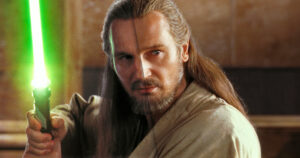
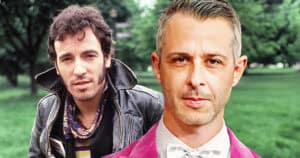

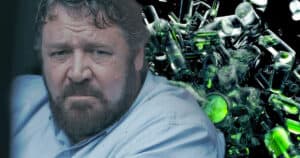
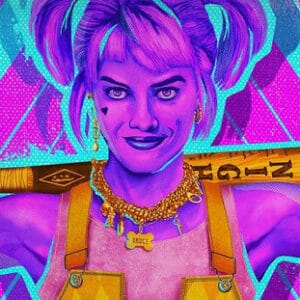
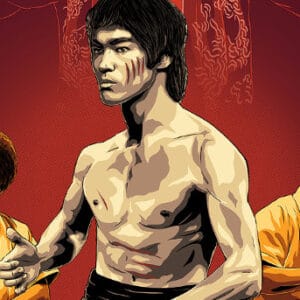
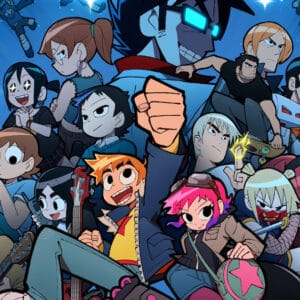
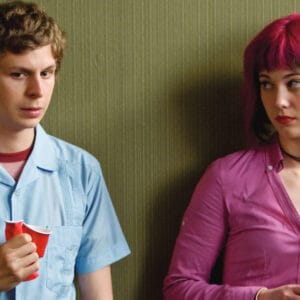
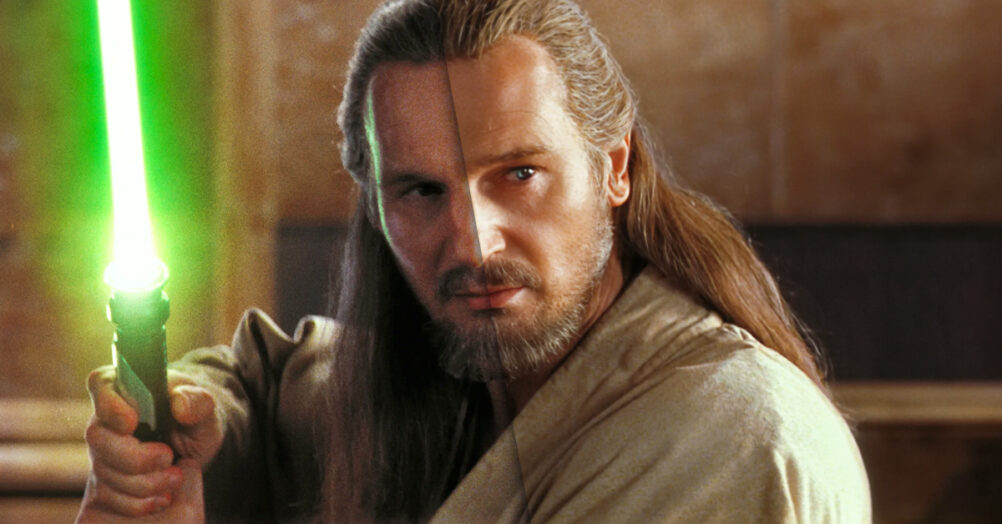
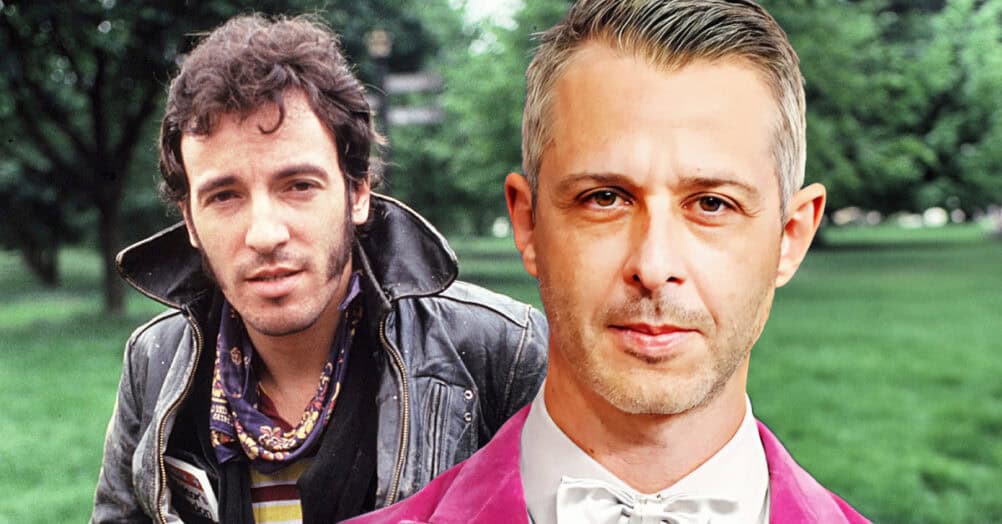
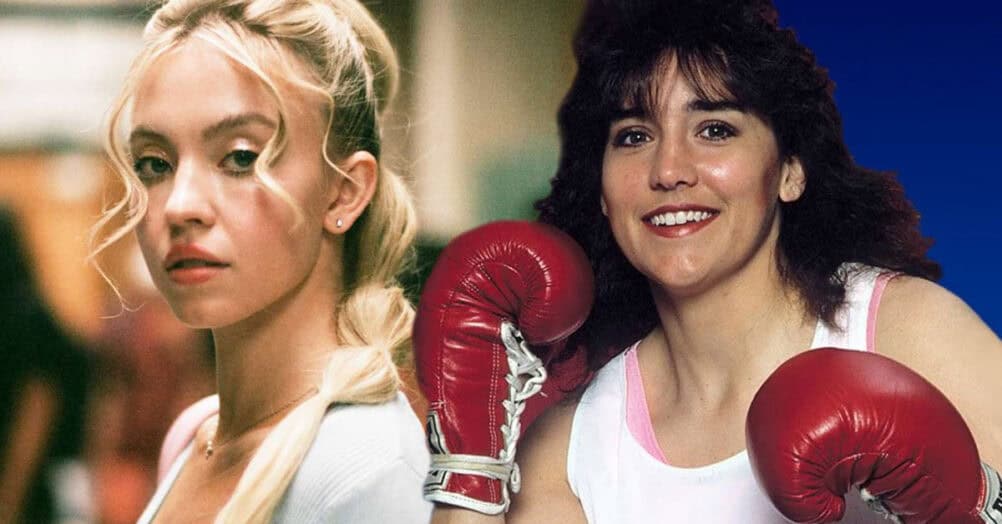
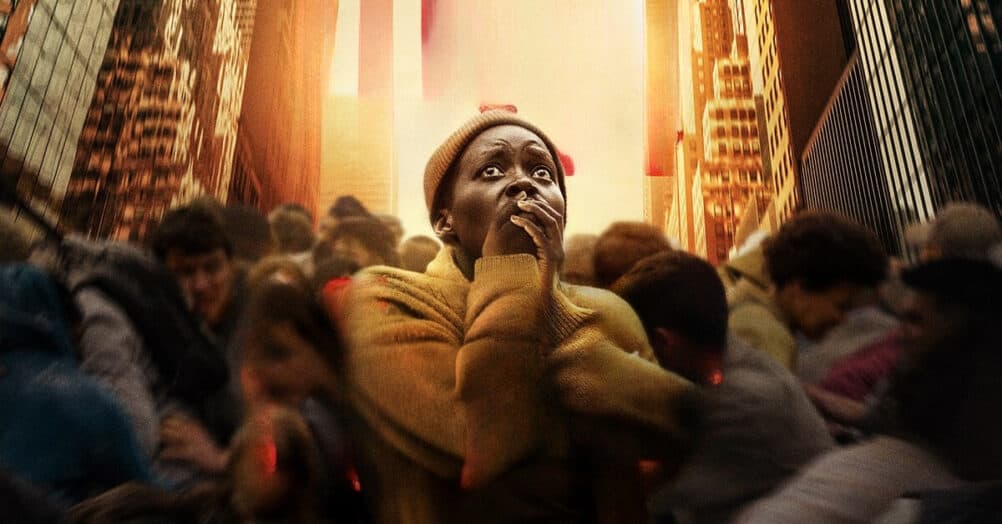
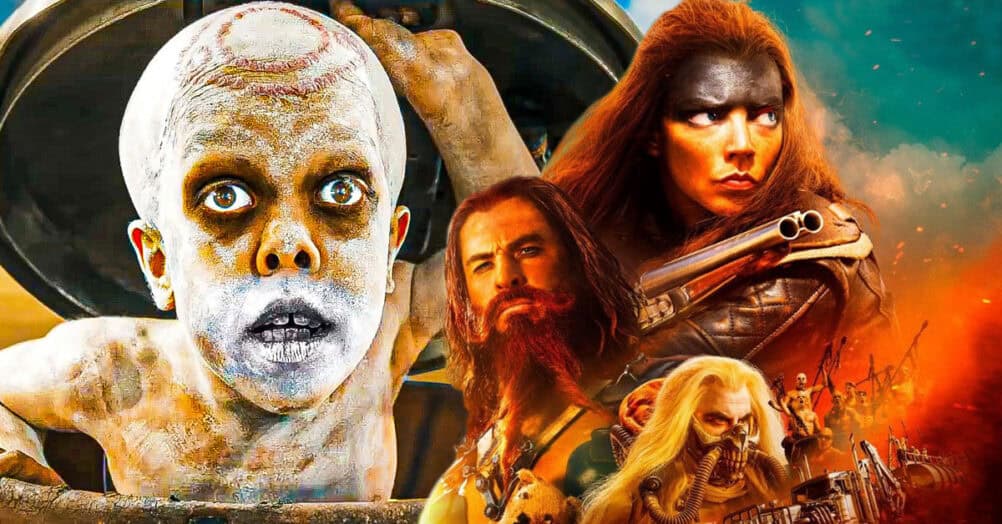
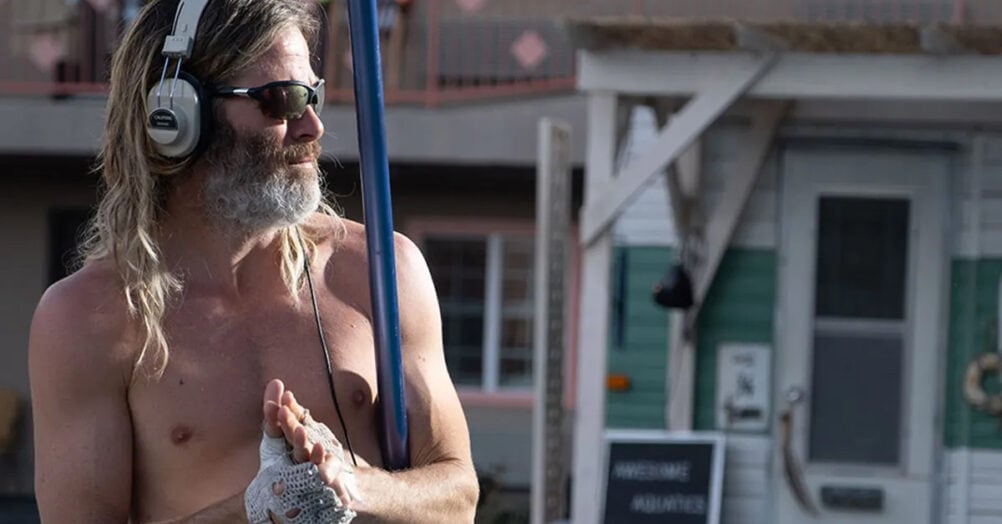
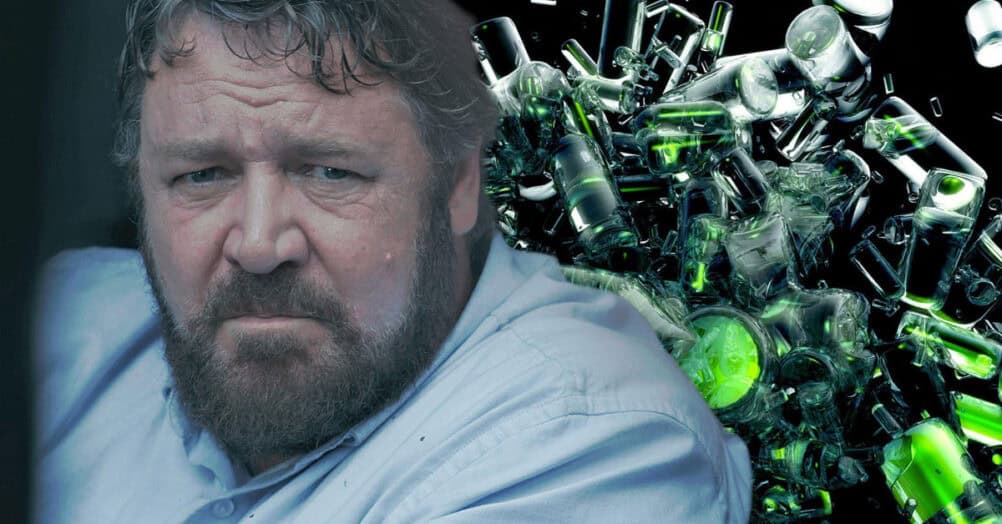
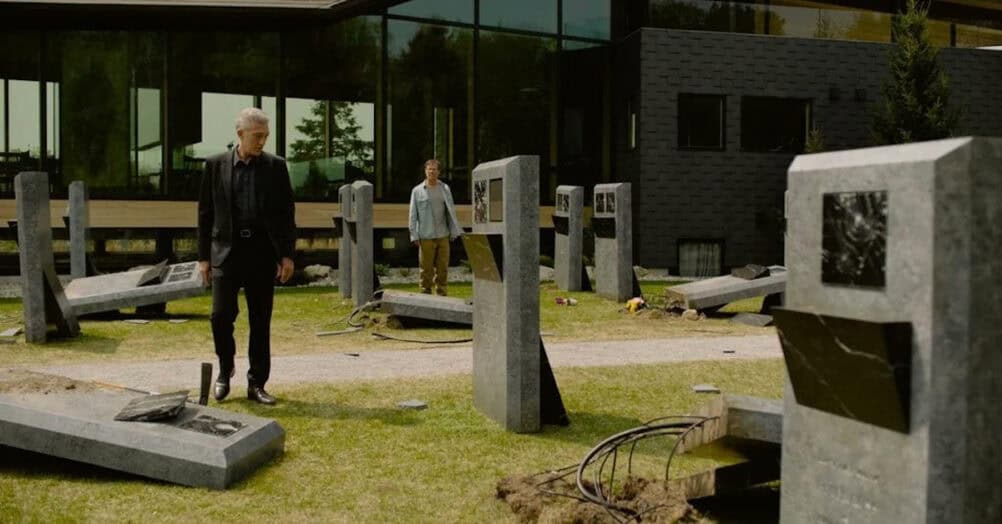
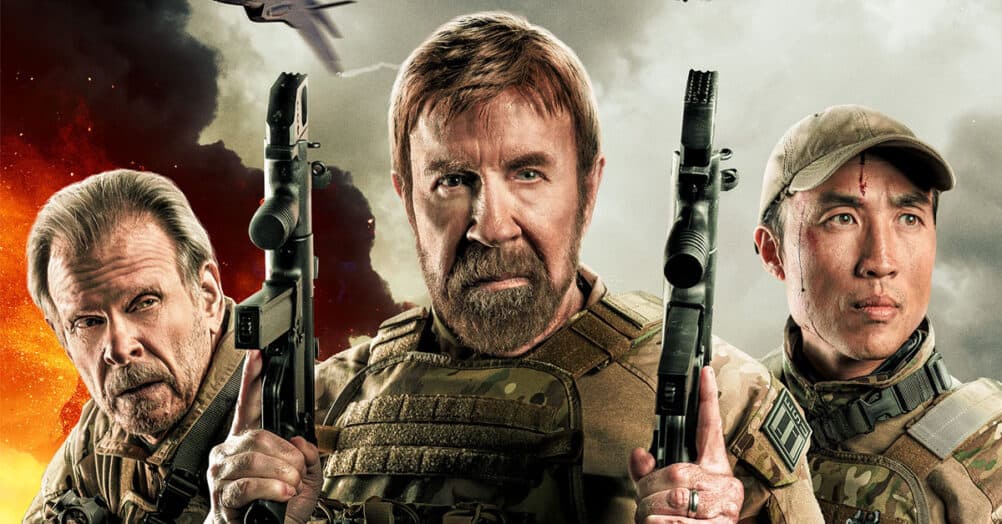

Follow the JOBLO MOVIE NETWORK
Follow us on YOUTUBE
Follow ARROW IN THE HEAD
Follow AITH on YOUTUBE